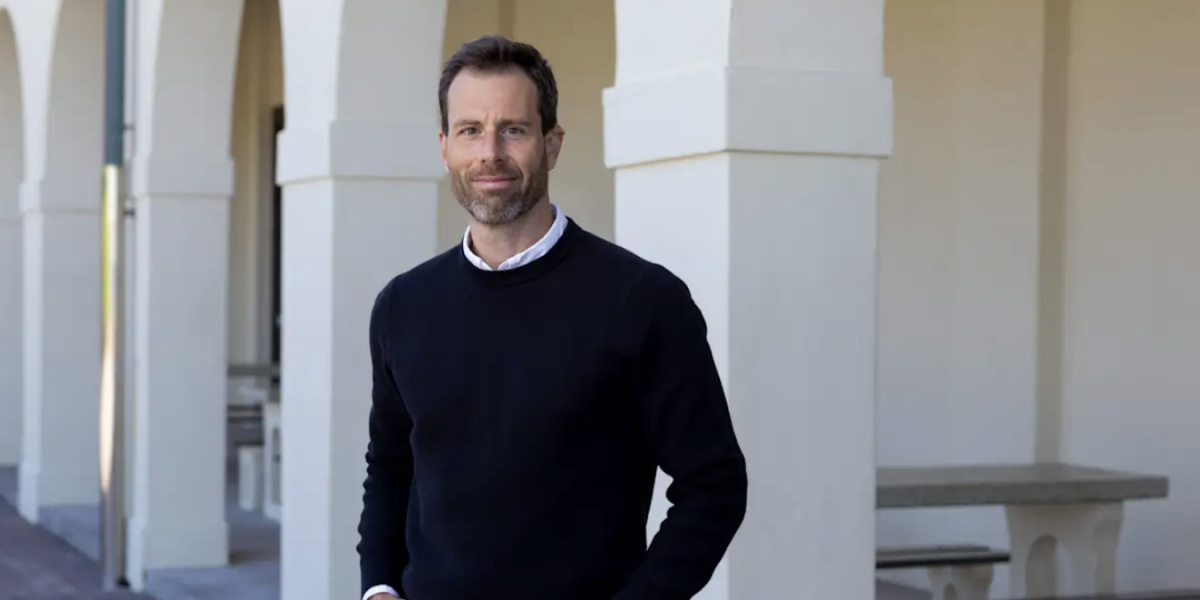|
Getting your Trinity Audio player ready...
|
– Sarah Jones for Financial Review
Link to The AFR’s original article: S&P 500 stock picks: Chris Demasi on markets, stock picks and Montaka’s latest big bet
Chris Demasi doesn’t seem to care that two of his four biggest stock bets have been dumped by the market this year.
Private equity firms KKR and Blackstone have both tumbled around 20 per cent since January, taking returns at the Montaka Global Long Only Fund with them. The other two – Amazon and Microsoft – have fared better. But it doesn’t really matter either way.
For Demasi, whose firm was bought by Chris Mackay’s MFF Capital last year and who managed the Lowy family’s $10 billion fortune for almost five years, it’s all just noise.
“Over one year, or two years, sometimes even three years, you can underperform, a stock can underperform, but it doesn’t mean you’re in a bad stock,” he says over a coffee at Bills near his home on Bondi Beach.
“What we’re much more concerned with is making sure that a business still has advantages over its competitors, that it’s still earning high rates of return, and that it’s still growing. It’s just like you would if you were the chairman of the business.”
It’s why Demasi has stayed invested in KKR and Blackstone, even taking advantage of the market rout in April to top up the fund’s holdings in the former – which at one point had sold off by a brutal 40 per cent.
And while he’s also had to endure heavy selling in Microsoft and Amazon this year, both owned for their cloud computing and artificial intelligence capabilities, the stocks have bounced back.
In fact, throughout the wild price swings of 2025 – first from the emergence of Chinese artificial intelligence startup DeepSeek in January and then from the Trump administration’s global tariff shock in April – Demasi and chief investment officer Andrew Macken have done very little to the portfolio other than some tweaks around the edges.
“We’ve seen this movie before,” Demasi says of the big stock moves. In 2022, Microsoft was rapidly building out its Azure cloud business and its earnings were growing by double digits, but investors still dumped the stock, sending the share price down by a third.
No worries
“Fast forward and look at what happened. The business continued to perform, and the stock reversed course. It’s uncomfortable when it happens, but when you are thinking about what returns will be in seven years from now, it doesn’t really worry me.”
Still, with the fund’s 10 biggest holdings accounting for three-quarters of Montaka’s entire book, it becomes very apparent in the performance figures when one or more of the stocks goes awry. The last six months have been particularly rough on returns, with the fund underperforming the benchmark by 10 per cent as at the end of May.
“Such is our industry,” Demasi laments. “You wouldn’t have had to do this 50 or 100 years ago when you just sent a letter once a year, like Warren Buffett did, to update investors.”
For Demasi and Macken – much like Buffet and the private equity firms that they invest in – their strategy is all about compounding capital over a much longer period of time than what their industry is typically set up for. Rather than one, three or five years, they’re thinking more 10 to 20 years.
Demasi says the problem with fund management is that it incentivises short-term performance and short-term stock bets when investors should be looking way beyond that.
“Everybody looks at returns as if a series of short-term returns make up their long-term return,” he says. “But it doesn’t have to be that way, and it shouldn’t be that way.”
Much of the Montaka’s $300 million in assets comes from self-managed superannuation, family offices and the firm’s own capital. That means the money is typically sticky and more aligned with Demasi’s time horizon.
But he still hears the stress in the voices of the advisers and consultants when he discusses the strategy, because for many, it’s difficult to manage any deviation in short-term performance away from the benchmark.
“It’s such a shame,” he says. “They tell me, ‘I know that the strategy and the approach is going to work over time, especially with the deep research, but I don’t know if I’ll be around or my clients will want me in 18 months if it’s not working out’.”
‘Zoom out’
Earlier this month Demasi presented at a forum in Sydney, where the advisers were still licking their wounds from when US President Donald Trump’s tariff policies erased trillions of dollars in market value.
It was clear to him that confidence in the sharemarket had been shaken. And while they weren’t running for the exit just yet, questions were being asked and concerns were being aired that had led to some poor decision-making.
“It was an excellent opportunity to remind everybody to zoom out,” Demasi recalls. “Volatility doesn’t just happen at a market level or in those poor performing stocks that make up the majority of the market. Volatility and drawdowns happen in the best stocks.”
His favourite example to prove his point is tech giant Apple that between 2010 and 2020 created $US1.5 trillion in value for shareholders and yet in 2012 and 2013 the stock had declined by 40 per cent.
“The biggest mistake would be to get rattled by that, or to sell out, to think that that can’t happen because it absolutely can,” Demasi says. “The point of it all is that … what’s happening in the stock market is very separate to what’s actually going on in the business.”
Most of Montaka’s 10 biggest holdings have been owned for at least five years, and the fund’s active share – that is the percentage of the portfolio that deviates from the benchmark – is 87 per cent versus around 60 per cent for the industry.
Demasi is quick to highlight a Notre Dame University study of more than 3000 equity managers over a quarter of a century that showed that the most patient investment managers, and those with the highest active share, came out on top.
“If you just took the managers who were top in active share, typically the high-conviction stock pickers, they turned $1 into 12 over that period,” he says. “Significant outperformance against peers and the market.”
Another mistake, according to Demasi, is holding cash in the portfolio – a strategy that came to the fore this year when some funds had increased their cash position to as much as 50 per cent.
‘The bench’
Five years earlier Demasi and Macken set a policy to remain fully invested because any benefit from a reduction in volatility or drawdown was “very minimal” compared to the loss of return over the longer term.
“Some people claim that they’re very good at being able to understand the macro, to time the market and wade in and out at the right times, I would suggest that there are a lot fewer people that can do that compared to the ones that claim they can.”
It’s for this reason that when the duo wanted to take advantage of KKR’s cheaper valuations during April, they trimmed their holdings in Spotify, which now sits just outside their top 10. Along with the roughly two dozen stocks in the portfolio, Montaka has a long list of companies on the “bench” – the due diligence is done but they haven’t yet initiated a trade.
One such stock was New York-listed Floor & Decor which Demasi and Macken pitched at Sohn in 2019 and have held a small holding ever since. Over that time, the shares have climbed near 70 per cent and the retailer has grown from around 100 stores to 250 today.
Late last year the duo significantly upped their stake, so it’s now “teetering” around the portfolio’s 10 biggest holdings.
“Flooring might not be the sexiest category, but it is something that is growing at GDP, plus there is structural growth,” Demasi says. “We were just waiting for an entry price.”
Demasi readily admits that his fund with its ultra longer-term strategy is not for everyone. But like many of his peers, he finds resolve in Berkshire Hathaway that has dropped 50 per cent several times since 1969.
“It’s like that great quote from Charlie Munger that goes something along the lines of ‘if you can’t handle a 50 per cent drop in a stock, then you deserve the mediocre returns that you’re going to get’.”
Source:
Link to the AFR article by Sarah Jones
Sarah Jones is the Financial Review’s markets editor based in the Sydney newsroom. She has covered financial markets, economics and asset management for more than two decades including 12 years for Bloomberg in London.




